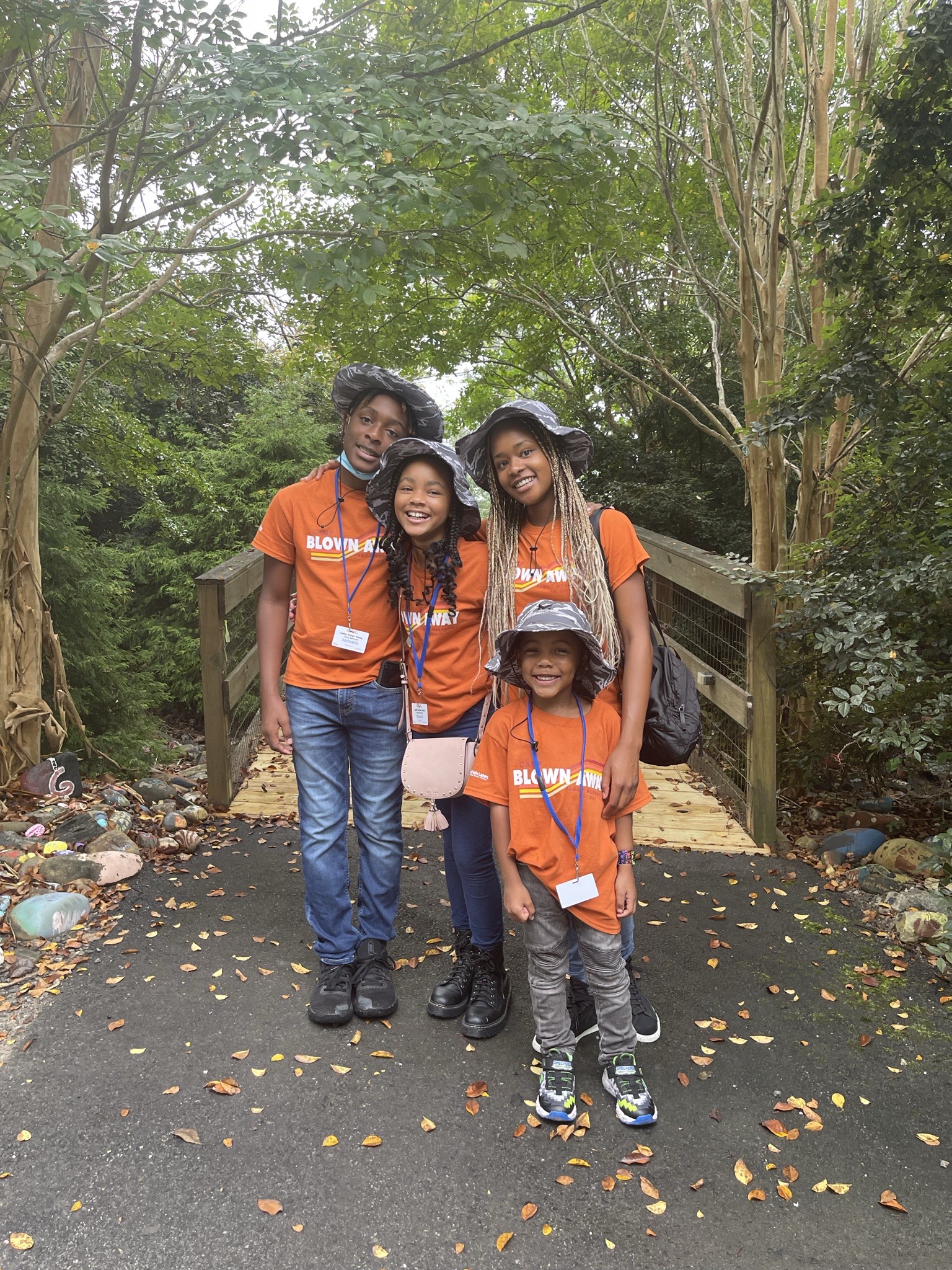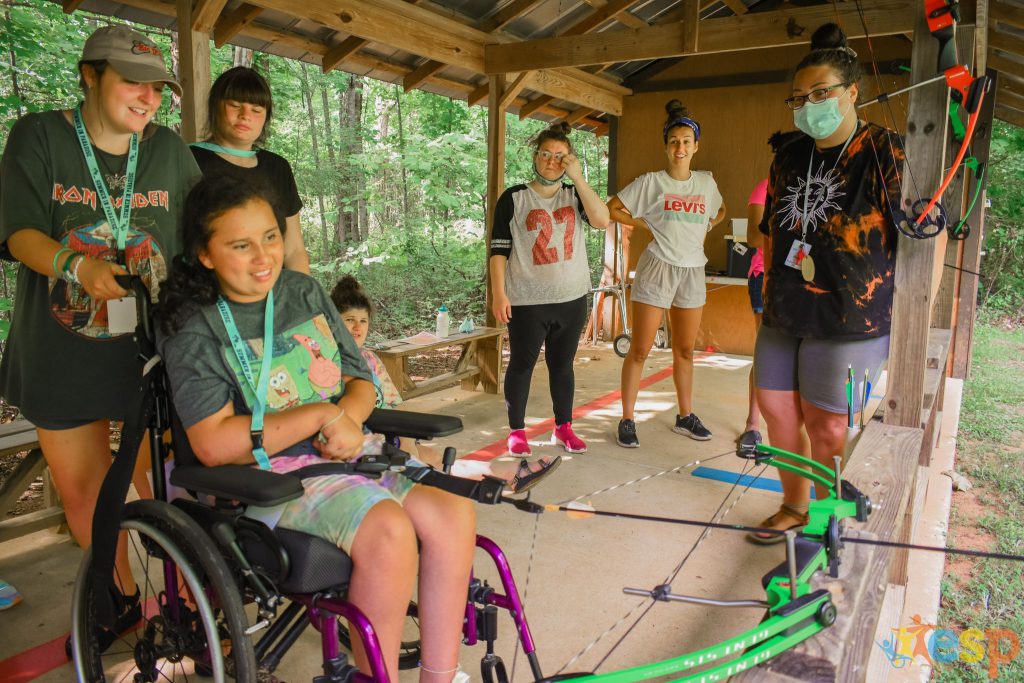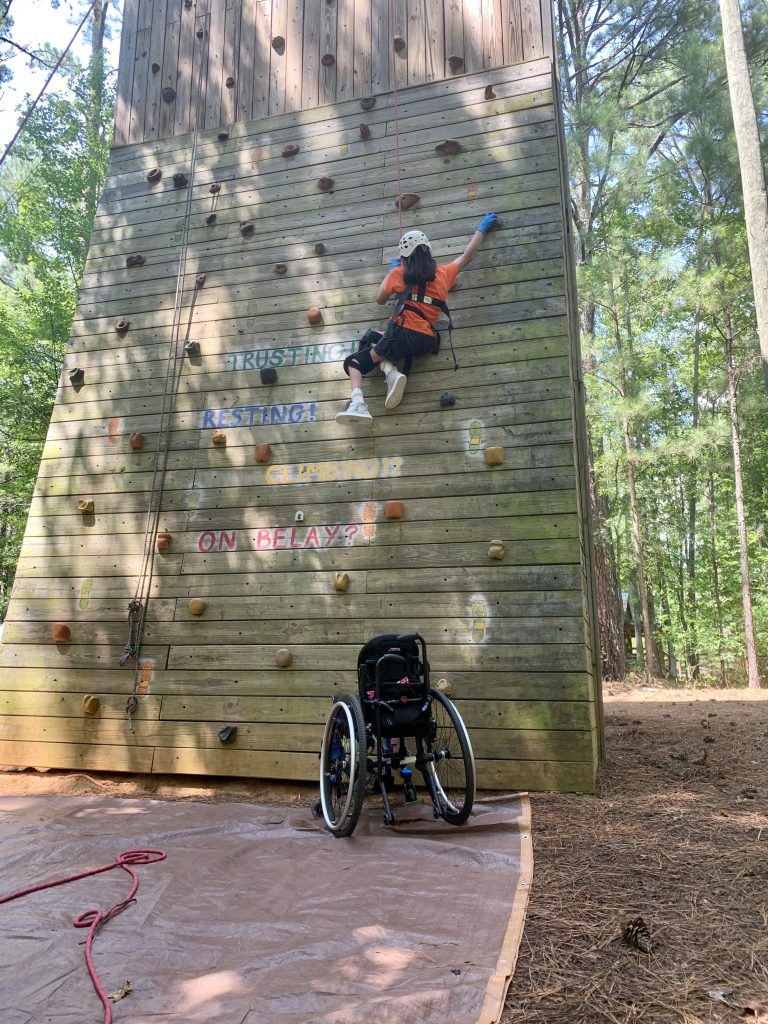
Camp Twin Lakes: Safe, Fun, Respite for Kids with Challenges and their families
Camp Twin Lakes (CTL) is a summer camp for children with all sorts of challenges. But it’s more than just a camp for children with medical and other issues. There are weekend retreats and adventures for families and even programs geared specifically military families. We have a soft spot for summer camps, but CTL is really special, offering state-of-the-art medical care to those who need it, and making sure that everyone has a good time. There was no doubt in our minds that they would find a good and important use for small grant funding.
We spoke to Director of Grants & Outcomes Measurement Anna Hutchins to find out more about Camp Twin Lakes:
Kars4Kids: Tell us about your campers. Who do you serve at Camp Twin Lakes? How many campers and families do you serve in a typical year?
Anna Hutchins: Camp Twin Lakes (CTL; “Camp”) is such an amazing place! In a typical year, we serve nearly 10,000 campers with serious illnesses, disabilities, and life challenges and their families. We have two campuses in Georgia and are building a new, third campus to help us serve even more campers every year. Our programs include weekend retreats for campers and their families, and week-long summer camps just for kids.
We also collaborate with more than 60 other nonprofits, our Camp Partners, to serve campers throughout the year. Our Partners help us recruit campers and specialized medical volunteers to meet their needs.
Kars4Kids: What are some of the health issues and disabilities that your campers deal with? What are some of the life challenges that your campers may be experiencing?
Anna Hutchins: Camp serves children and teens with a wide range of illnesses, disabilities, and life challenges, including children with cancer, type 1 diabetes, limb differences and amputations, heart disease and transplants, cerebral palsy, brain injuries, epilepsy, and Tourette syndrome, as well as children with an incarcerated parent, children living in poverty, and children who have experienced trauma.
Our campers face isolation, low self-esteem, lack of self-acceptance, and lack of wellness opportunities in their daily lives. They often are the only child in their school or family who is facing a certain diagnosis, or they feel separate from their peers because of their life challenge. Camp gives them a place to build lasting and meaningful friendships, learn and practice new skills, and build confidence – all in a safe, supportive environment.
Kars4Kids: How does Camp Twin Lakes provide for children with health issues or disabilities? What sort of medical staff and facilities do you have? Do you have mental health care professionals on hand to help campers suffering from mental health issues?
Anna Hutchins: One of the great things about is Camp is that we can support our campers’ diagnoses and medical needs onsite. Our campuses have medical lodges that act as onsite clinics, providing intensive medical treatments, like chemotherapy, dialysis, or factor injections, as well as daily medications and treatments. We also have adaptive equipment to support campers of all mobility levels. This means everyone can ride horses, get in the pool, shoot archery, or canoe in our lakes.
Our staff are trained in trauma-informed care, and we train our volunteers on supporting campers with adverse childhood experiences. This provides an understanding of how trauma impacts children, families, adults, caregivers, and providers, and increases understanding of complex trauma exposure. By furthering our understanding of trauma, we are better able to serve our campers in a more meaningful and effective way. And as we grow, we will develop intentional programs for youth with non-acute mental health diagnoses and work with local mental health organizations to provide specialized therapeutic programming.

Kars4Kids: What kinds of activities do you offer? What are some of the challenges you encounter with ensuring that children with disabilities or health issues are able to participate, and how do you deal with them?
Anna Hutchins: Camp provides all of the traditional activities you think of when you hear the word “camp” – archery, zip lines, rock walls, kayaking/canoeing, biking, high ropes courses, woodworking, pottery, arts & crafts, horseback riding – we just make everything adaptive so that all kids can engage! Our staff are experts in medical and disability camping and have developed many of the adaptive techniques and equipment we use onsite, like our water wheelchairs, zip line and climbing wall harnesses, and bow mounts for archery. We also have accessible playgrounds, customized meal plans that encompass each camper’s unique dietary needs, and accessible onsite cabin housing so kids can stay right at Camp.
We also have a 120-acre farm on our Rutledge campus that is incredible. Our farm provides STEAM learning, outdoor teaching kitchens, and wheelchair accessible greenhouses and gardens. Our farm has chickens and production land, too, that provide eggs, fruits, and vegetables for our dining halls!

Kars4Kids: Why is camp important for the campers you serve? Why is it important for your staff and volunteers? How many volunteers and staff do you have?
Anna Hutchins: Camp is incredibly important to the youth and families we serve, and the COVID-19 pandemic showed us just how much. The COVID-19 pandemic compromised our campers’ mental, emotional, and physical health, causing isolation, lack of community, and lack of access to wellness and development opportunities. Our campers and partners have looked to us to provide safe places for community, respite, nature-based physical activity, and connection during this time. We are deeply grateful to be part of our campers’ lives and be able to support them and their families.
One of our core values is that people come first. Working and volunteering at Camp provides incredible opportunities for personal and professional growth, learning about different diagnoses and life challenges, and being part of a community whose common goal is improving the quality of life of children and youth with special healthcare needs and life challenges. We have a year-round staff team of about 30, including program, administrative, and maintenance staff. We also engage around 3,700 volunteers every year, including corporate workday groups, special event support, seasonal summer staff, cabin counselors, and medical staff.
Kars4Kids: You have a lot of different camps. How long is your summer camp? What ages do you serve? Can you also give us an overview of your weekend camp and Camp-To-Go?
Anna Hutchins: Camp does have a lot of camps! Each “camp” is for a specific diagnosis or life challenge, which allows campers to build community and meaningful relationships with peers who are facing the same situation. Our week-long summer camps run from Memorial Day through the first week of August, and we serve between 20 and 30 different groups over the 10-week period. Our campers range in age from six years old to young adult, with more than half in the 10-19 year old range.
Our weekend programs mostly provide opportunities during the school year for families to attend Camp with their child or teen camper. Some of our weekend programs are leadership development retreats for older teen campers, as well as programs that provide space for teens to build the skills they’ll need to transition from pediatric to adult healthcare (like when they go to college or are on their own for the first time).
Camp-To-Go brings Camp to our campers! We have paused this program during the pandemic and are excited to resume them as soon as possible. This program brings the same intentional, engaging, and therapeutic activities enjoyed at our rural campsites directly children who are in hospital-based or rehab settings. Children participate in activities like blow-dart archery, kiddie pool fishing, and silly games. Camp-To-Go designs camp programs to match patients’ abilities, while also helping them reach goals set by the clinical team. For example, blow-dart archery doubles as an opportunity for children to work on lung capacity and strength, and kiddie pool fishing works on mobility and coordination.
Kars4Kids: What about your Military Family programs? Can you tell us about them?
Anna Hutchins: We started serving military veterans and service members and their families in 2015 when we saw a need for wraparound, family-based programming. We have a dedicated program coordinator who focuses specifically on these campers. Our weekend programs in the spring and fall provide opportunities for sharing experiences and personal stories; therapeutic adult recreational and connection programs; breath awareness; therapeutic art projects; equine therapy; kayaking; team-building ropes courses; yoga; nature-based family bonding activities; and outdoor games. We serve nearly 300 veteran service members and their families through these weekend retreats every year, as well as 100 children in military families through a week-long, child-only summer program.
Kars4Kids: You also offer Adventure Camping and Family Getaway Weekends. Can you give us an overview of these programs?
Anna Hutchins: Family weekends are incredible ways to increase camper touchpoints and provide community and respite to the whole family. These weekends programs also help us serve smaller groups that do not hold summer programming. The therapeutic focus of our weekend camps helps all members of the family learn how to cope with their unique challenges, build peer support among parents and siblings, and let our campers show off what they’ve learned!
In a typical year, we also have teen weekend retreats where campers sleep in traditional dome style tents, cook over open fire, and learn about outdoor living skills. It’s a great chance for older campers to get away, develop leadership skills, learn independence, develop a sense of community and teamwork, and gain a new appreciation for nature. This program is also paused during the pandemic, and we can’t wait to bring it back!
Kars4Kids: How did the pandemic affect your programming?
Anna Hutchins: Our program team pivoted quickly to create and implement incredible virtual programming called Camp Twin Lakes: Connect. This allowed us to continue engaging our campers during the early months of the pandemic. Each week during Summer 2020, our staff led programs and activities tailored to specific diagnoses and populations, teaching campers the same values, skills, and life lessons they learn when they come to Camp in person. Campers engaged in daily activities like music, cooking, science, and nature exploration), group discussions, and interactive live programs. Everything was adaptive and accessible, and we served nearly 700 campers during Summer 2020.
We returned to modified, in-person weekend programs in August 2021 to serve campers and families. Because of the pandemic, 80% of our families felt increased isolation, 50% reported mental health challenges, and 33% experienced a loss of income or job. Camp is grateful to have been able to provide a safe place for respite and outdoor activities for our families, giving them the opportunity to rest and bond outside of the home.
Kars4Kids: What’s next for Camp Twin Lakes?
Anna Hutchins: We are growing! Our programs have waitlists and our third, year-round campus will increase our capacity by 33% – that is 3,500 more campers served every year. We started a capital campaign in 2019 to build a third, year-round campus to meet this need. Our community of donors and supporters continued to prioritize our campers through the pandemic, and we reached our fundraising goal in June 2021! We are continuing to raise funds for increased construction costs and all of the adaptive equipment and supplies needed at our new campus. Camp is excited to open this new campus in early 2023 to serve campers throughout the year!